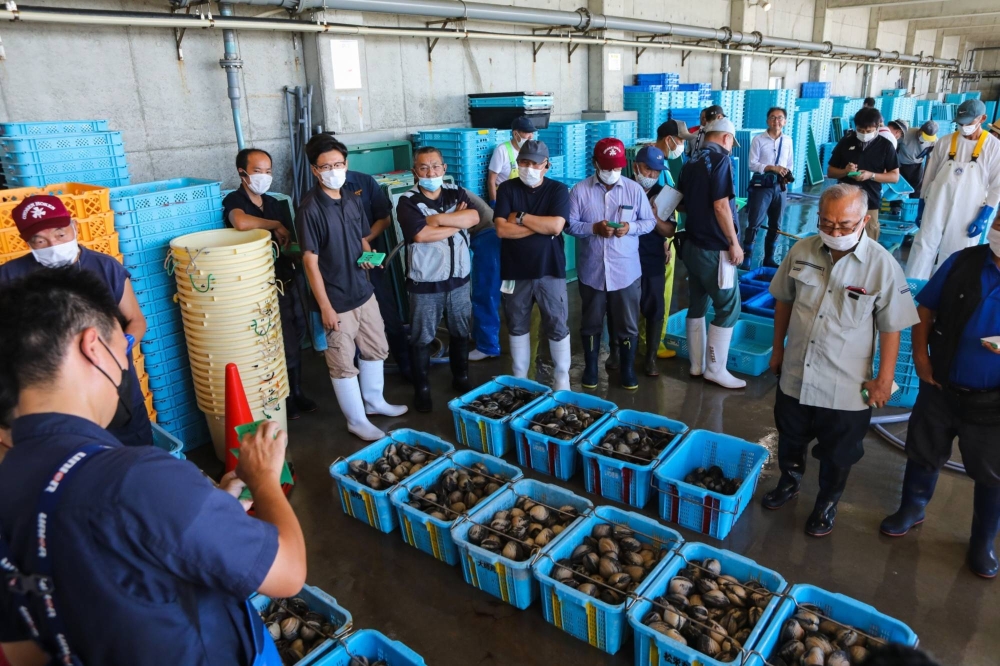Japan’s marine product exports to China plunged 90.8% from a year earlier to ¥800 million ($5.3 million) in September, after Beijing began a blanket import ban on Japanese seafood over the discharge of treated radioactive water from the crippled Fukushima nuclear power plant into the sea, government data showed Tuesday.
The China-bound exports fell for the third consecutive month, according to the Ministry of Agriculture, Forestry and Fisheries, with the continued drop in shipments to the largest destination hurting the Japanese fisheries industry.
Russia joined China last month by restricting Japanese seafood imports in the wake of the water release from the Fukushima No. 1 nuclear power plant.
Exports of main seafood items such as scallops sagged to zero due to the import ban that took effect immediately after the water release began on Aug. 24. Nonfood products such as pearls, coral and carp were among products shipped in the month.
The aggregate exports of Japanese agricultural, forestry and fishery products to China in September sank 47.4% to ¥13.9 billion, the data showed.
By contrast, marine product exports to Hong Kong rose for the second consecutive month, rising 86.9% to ¥12.6 billion in September. Rather than a blanket ban, the territory has placed a restriction only on seafood exports from 10 prefectures in Japan, including Fukushima.
The water discharge from the Fukushima plant, damaged in 2011 following a massive earthquake and tsunami, began after the International Atomic Energy Agency’s review report in July, which concluded that the plan adhered to global safety standards.

